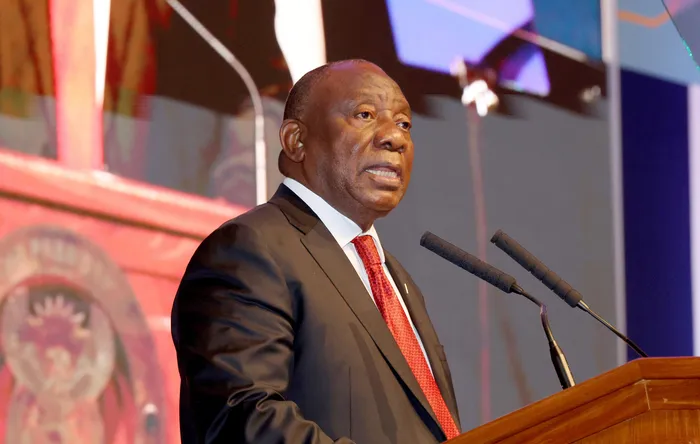Ramaphosa calls for national unity through confronting apartheid injustices

President Cyril Ramaphosa says confronting apartheid-era atrocities is essential for national unity, as South Africa continues to repatriate human remains and restore dignity to victims and their families.
Image: GCIS
President Cyril Ramaphosa has emphasised the need for South Africa to confront the injustices of its past as a critical part of building national unity, healing, and democratic resilience.
In his letter to the nation, Ramaphosa said, “Dealing with the memory of past atrocities is one of the most difficult and delicate tasks a nation can undertake. This can be a cathartic process, but it is vital if a country is committed to enhancing national healing, cohesion and unity.”
He was reflecting on the recent reburial of anti-apartheid activist Advocate Duma Nokwe, who died in exile in Zambia in 1978. Nokwe, a former Secretary-General of the ANC and the first black advocate admitted to the Johannesburg Bar, was among 42 liberation fighters whose remains were repatriated from Zambia and Zimbabwe last year.
“In recognition of his contribution to the legal fraternity, we conferred him the status of senior counsel posthumously,” Ramaphosa said.
Ramaphosa noted that many families still live with the trauma of losing loved ones during apartheid, many of whom disappeared in exile or at the hands of the regime.
“We remain equally committed to restoring the dignity of apartheid’s countless victims and to bringing closure to their families,” he said.
While the Truth and Reconciliation Commission (TRC) was created to uncover the truth of apartheid-era crimes, many implicated individuals refused to cooperate.
“Many apartheid-era security officials either refused to appear before the TRC or did not fully disclose their actions. Others resorted to delaying tactics and obstruction to evade trial,” Ramaphosa said.
He confirmed that a judicial commission of inquiry will be established to investigate alleged interference in the prosecution of these crimes.
Ramaphosa also highlighted government efforts to repatriate the remains of South Africans held in foreign collections.
Referencing the 2002 return of Sara Baartman’s remains and the 2012 return of Klaas and Trooi from Austria, he said these actions are being guided by frameworks such as the National Heritage Resources Act and a draft National Policy on the Repatriation and Restitution of Human Remains and Heritage Objects.
He said the Department of Sport, Arts and Culture, along with other government institutions, continues to engage with several countries to facilitate the return of human remains and heritage items.
“As a country, we have had to contend with our past in the interests of social cohesion and nation-building,” he said. “We have advanced policies of restitution and redress to both acknowledge and correct the historical injustice of apartheid.”
hope.ntanzi@iol.co.za
Get your news on the go, click here to join the IOL News WhatsApp channel.
IOL Politics